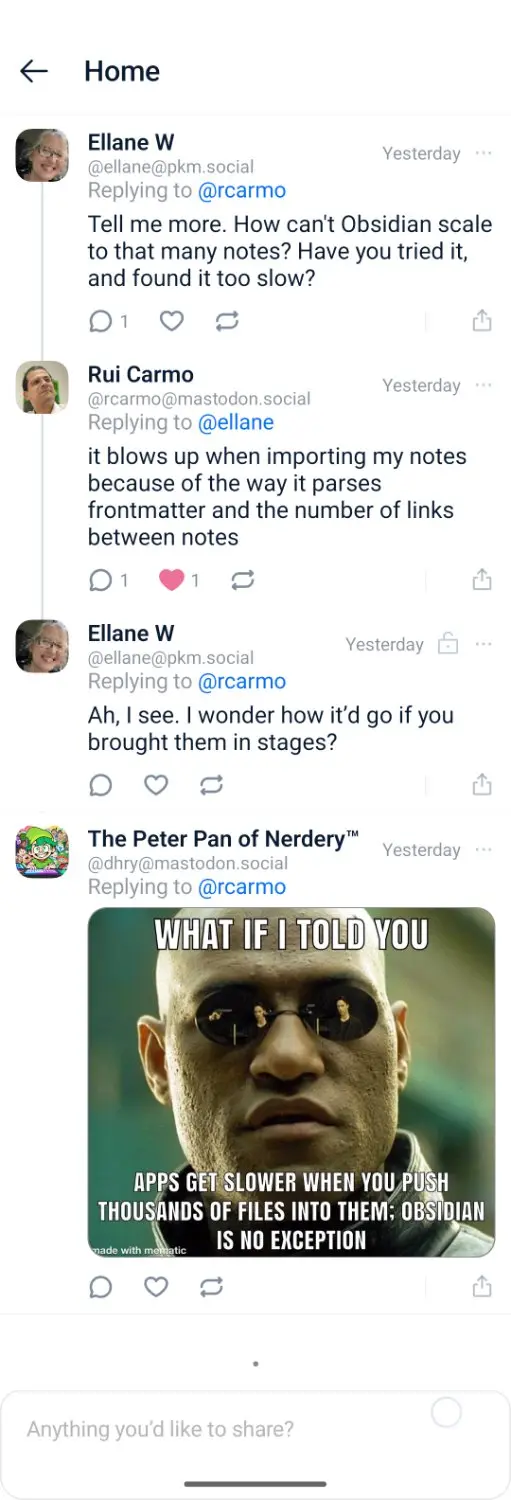this post was submitted on 26 Jul 2024
88 points (95.8% liked)
Personal Knowledge Management Systems (PKMS)
568 readers
5 users here now
A place for people to discuss Personal Knowledge Management Systems (PKMS) such as "Building a Second Brain" (BASB), Obsidian, and more.
founded 2 years ago
MODERATORS
you are viewing a single comment's thread
view the rest of the comments
view the rest of the comments

I regularly get to a 30gb page file on my desktop though...it has sufficient space but still
That's a different mechanism. A "page" is just a fixed-size portion of memory, e.g. 4 KiB, which is a convenient size for your OS to do its whole memory management with. And then there's many things the OS does with such pages.
Page caching keeps files that processes loaded from your hard drive in RAM, after the process doesn't need it anymore.
What you're referring to is kind of the opposite. The OS allows processes to reserve more memory than there is physically available. This is called "virtual memory".
When processes do that, then some of those ~~portions of memory~~ pages get put onto your hard drive, and only get put back into RAM (replacing something else) when the process actually accesses those pages.
The fundamental result isn't much different, there's 30 GB of populated memory being sent to disk because these apps all over allocate and the os insists on sending it to disk even with 40% of real ram free.